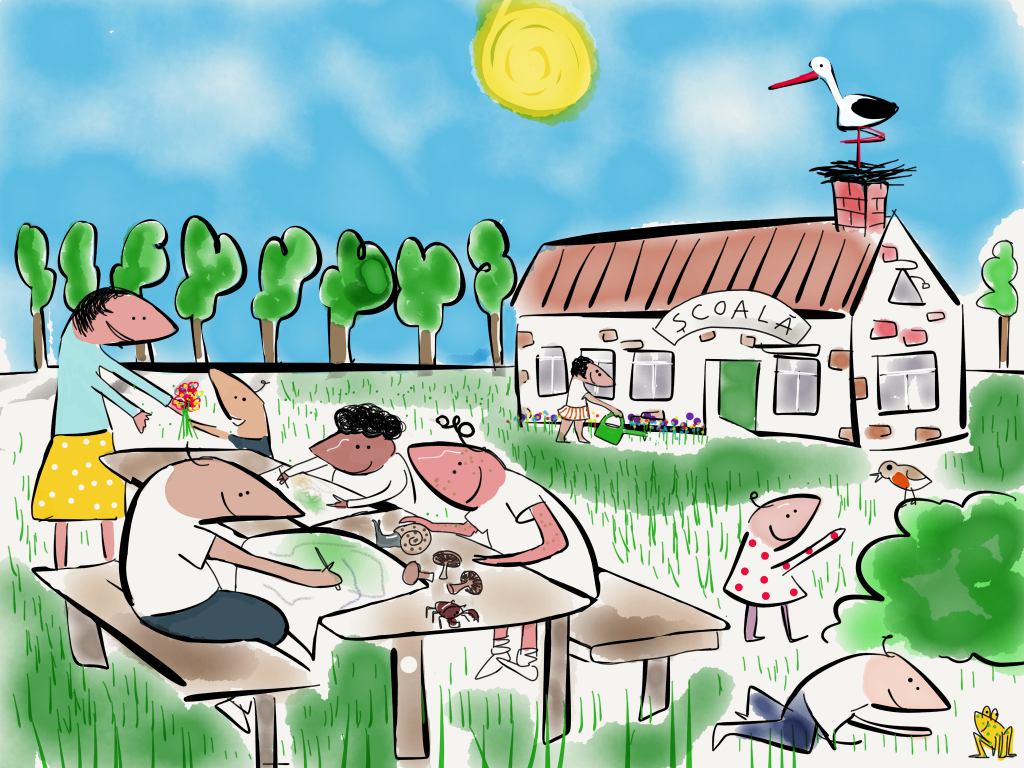I saw there is a petition out calling for a rerun of the Brexit vote. I have also seen lots of anger at racism and UKIP. I don’t think any of this is useful. I think our response to the Brexit debacle must also be to look at the underlying issues and learn. This blog is based on some notes I wrote to a “Remain” friend in Shrewsbury, in the West Midlands, the region with the biggest support for Brexit.
The underlying issue is that there are lots and lots of people in the country who don’t enjoy the ease, pleasure, security, convenience, comfort and so forth that we enjoy and take for granted every day. People who don’t enjoy the fruits of a society which is designed by and for educated middle class people.
The beauty and ease which is either Waitrose or the farmer’s market. Espresso England. Nice houses and cricket and tennis and trees. All that is the Loop[1]. All of prosperity.
When UKIP reemerged and people sneered at them for being a bunch of racists it was an error of judgment. People chose to ignore the malaise and alienation which pushed them back to tribalism. If you listen to UKIP people it’s not about Poles or Refugess but about being alienated by big business, distant politicians and inequality. I think the loss of control is not control over England but people feeling rightly or wrongly they don’t have control over their own lives. (Whether they ever did or ever can is another question: it is probably all about perception.)
So we shouldn’t be surprised by Brexit because all the signs were there; and if we are angry we should be angry with ourselves for ignoring the signs and not working to undermine the inequality which led to it.
I think there are some fundamental things here because Brexit, Trump, Orban etc mark a strengthening of tribalism. For me the bad thing is not Farage or Trump or LePen: the bad thing is that there are millions of people who *listen* to them and have cause to listen to them. This is the crux of the matter.
For Farages and Trumps to have millions of followers shows that there are millions of people without the education, upbringing, culture, good fortune or confidence to resist the lure of tribalism. That is something we have some kind of responsibility for because I think the socio-economic model which allows us luckier people all those lovely fruits of a pleasurable life is the same one that cannot afford to let infants in their formative years spend lots of time with their mums [2]; cannot afford plenty of paternity leave; cannot afford high quality education across the board; can’t afford the caring nurturing of the young that innoculates them from tribalism.
If you want democracy and you want a certain outcome then you have to ensure that lots of people agree with you – so they need to have similar views and values. That means that lots of people have to have similar upbringing and education and influences to you, otherwise they’ll have different views and values. So you need to ensure that lots of people have the same chances for a happy home and good education as you did.
I don’t think politics will solve this because politics is still too controlled by big business and too enamoured of GDP and TTIP and all that nonsense. Politics can’t collect taxes any more (viz Google etc). Politics doesn’t get culture (culture in the broad sense, except perhaps Farage who says there is more to politics than economics, showing he is a fair bit wiser than George Osborne) – by culture I mean the social fabric that makes us civilised: you can’t count civilised so economists ignore it.
This issue will be best addressed by grass roots efforts: all manner of groups and movements and societies and charities which get among the people and spread the values which we cherish. England is really good at charities and social movements so we have the infrastructure for that.
I saw that West Midlands had the strongest showing for Leave. Perhaps we have to go to Telford and Wolverhampton and meet people there who are having a tough time and give them some support. It might be difficult and uncomfortable. It might remind us of our random good fortune and make us feel awkward. It’s not something I’d feel comfortable with but it is probably what needs to be done. Although I guess the last thing they want is a bunch of comfortable do-gooders and evangelists descending on their communities.
If we expect politics to do solve these issues for us, we are likely to be disappointed. If we want to rebuild social fabric, mutual trust and understanding, and undermine tribalism, it is up to us and we will have to get out and do it.
==
Notes:
[1] The Loop is the rather idyllic central part of the town of Shrewsbury, within a loop of the River Severn.
[2] Worth seeing the Brazilian documentary film: The Beginning of Life


